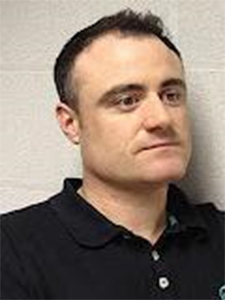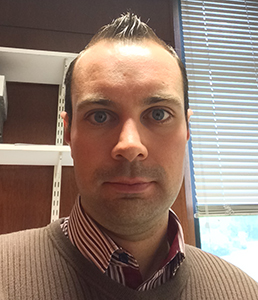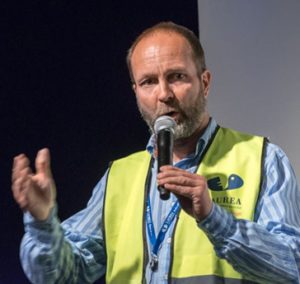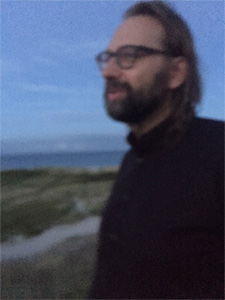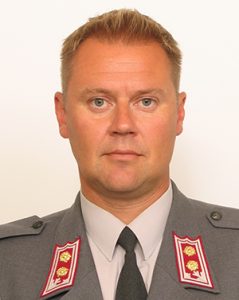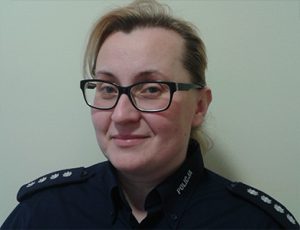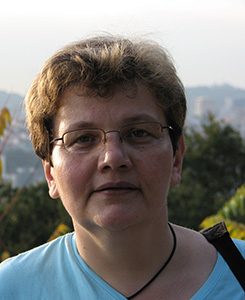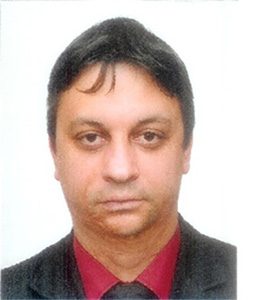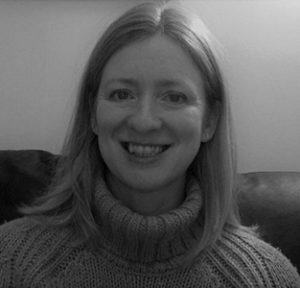 Principal Investigator Anne Holohan
Principal Investigator Anne Holohan
Anne Holohan is the Gaming for Peace Principal Investigator and Consortium Coordinator. She is Associate Professor in Sociology at Trinity College Dublin. Her primary research lies in networks and cooperation, with particular focus on complex peacekeeping and reconstruction operations, and on collaboration and gamification using digital technologies. Her previous research included an ethnography of inter-organizational cooperation in the United Nations Mission in Kosovo (Networks of Democracy, Stanford University Press, 2005) and a study of the role of cooperation and competition in motivating volunteers in distributed computing projects (Community, Competition and Citizen Science, Ashgate, 2013). A graduate of Trinity College Dublin, London School of Economics, and the University of California, Los Angeles (PhD), she was a Marie Curie International Fellow in the University of Trento, Italy.

Justyna Pyz
Dr. Justyna Pyz is an anthropologist specialising in intercultural relationships. She received her MA and PhD from the Jagiellonian University, Kraków. Her research includes Role Playing Games amongst secondary school and university students and interreligious dialogue in India. She worked previously on the IRCHSS-funded project, ‘Ireland, empire and education’, based in the TCD Centre for Irish-Scottish and Comparative Studies and co-edited Irish classrooms and British empire: Imperial contexts in the origins of modern education (Four Courts Press, 2012). She also has experience in database management, exhibition curating and working with charities.
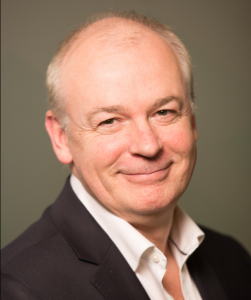 Vincent Wade
Vincent Wade
Professor Vincent Wade is Director of the ADAPT Centre for Digital Media Technology and Chair of Computer Science (Est. 1990) in School of Computer Science and Statistics, Trinity College Dublin. His research focuses on intelligent systems, AI and Personalisation. As Director of ADAPT, Vincent heads a world leading research Centre uniquely focused across the life cycle of digital media, which pioneers technologies for media analytics, advanced machine learning, machine translation, media personalization, speech & multimodal interaction and eithics & privacy in media. He was awarded Fellowship of Trinity College for his contribution to research and has published almost three hundred scientific papers in international journals and conferences. Vincent is also the co-founder of a successful TCD spin-out company called EmpowerTheUser which specializes in simulation based learning platforms and immersive learning analytics. Other awards won by Professor Wade include the European Language Label Award for innovation in Language Learning Technology (2010).

Ciaran Devlin
Ciaran Devlin is a PhD candidate in the department of Sociology in Trinity College. Having completed his undergraduate degree in Geography and Sociology in Trinity College Dublin; he has since developed a specific interest in the area of Digital Sociology, and in particular the intersections with gender and sexuality within these digital spheres and their wider applications.

Sara Singleton
Sara Singleton is PhD researcher on the GAP project. Her research focuses on the role of trust in international peacekeeping collaboration. Sara has a BA in English, Media and Cultural Studies from IADT in Dublin, and an MA in International Politics and Human Rights from London City University. She has worked in communications and project management with international NGOs, and in facilitation and training with young people, including young asylum seekers and refugees.
Jonny Byrne is currently a lecturer in Criminology in the School of Criminology, Social Policy and Politics at the University of Ulster. Jonny lectures on issues relating to policing and security, countering violent extremism and psychology within the criminal justice system. He has completed a number of research projects on public attitudes to peace walls, paramilitary violence, young people’s participation in political violence, community experiences of public order policing in Northern Ireland, bonfires, and the manipulations of commemorations and celebrations in a contested society. Jonny works closely within a number of organisations including the Police Service for Northern Ireland (PSNI) and the Department of Justice (DoJ) on areas pertaining to ‘policing with the community, confidence and accountability’. In the previous two years Jonny has been awarded two ESRC Knowledge Exchange awards, were he worked with the British government and the DoJ on supporting policy making through academic research and analysis.
Jonny is also a member of the European Union Radicalisation Awareness Network (Youth, Families and Community Working Group and the Police and Law Enforcement Working Group). Dr. Byrne is a member of the Youth Advisory Group to the Northern Ireland Policing Board. He has also been responsible for two recent reports on radicalisation in Northern Ireland (2016) for the International donor Co-operation Ireland, looking at motivations behind young people’s participation in political violence. Aside from the GAP project, Jonny is currently managing two research projects that are looking at the policy around commemorations and identity in a shared society (for the community relations council) and the challenges around implementing a policing with the community strategy in a divided society (for the PSNI).
Dr Philip McCready is a lecturer and research associate in the School of Criminology, Politics and Social Policy at Ulster University in Northern Ireland. He was awarded a PhD by the Ulster University for his thesis on the capacity of community-based restorative justice to activate civil society within a working class Loyalist area in South Belfast. He has a degree in Law and an MSSc in Criminal Justice from Queen’s University Belfast. Dr McCready has worked previously on a European Framework 7 research project ALTERNATIVE involving partners from Belgium, Serbia, Hungary, Austria, Norway and the Ulster University. The Ulster University role formed part of the active research component and the research was conducted at selected sites in Northern Ireland and considered the capacity of restorative responses in addressing conflicts between local communities and gangs of youths, between long-term residents and recent immigrants, and inter-community sectarian conflict. Lecturing and research interests include theories of crime and deviance, young people in conflict with law and justice, restorative justice and the role of restorative practices in response to legacy issues of hegemonic and patriarchal control by state and paramilitaries in post-conflict societies.
Ms Kirsi Hyttinen is acting as WP7 Leader in GAP –project and in charge of Stakeholder Consultations in Finland. She holds a position as Senior Manager for Research at Laurea University of Applied Sciences (www.laurea.fi/en). She has a strong awareness project management and coordination through international projects responsibilities (H2020 –funded, FP7-funded, DG funded, regionally funded, tenders). During her commitments in Laurea, she has resulted grant funding for Laurea over €1,5 million. She has years of experiences of the design and implementation of different adult education and higher education training programs in the field of civilian crisis management and conflict prevention. She has been Consortium Coordinator of IECEU (Improving the Effectiveness of Capabilities in EU conflict prevention) -project (www.ieceu-project.com), which GAP Consortium collaborates with.
She has been responsible of dissemination and intercultural communication implementation, including major international partnerships. She has gained a strong awareness of the conflict prevention and peacebuilding through research and operational tasks. She has the intercultural communication and competence skills and know-how on the crisis management concepts, such as comprehensive approach, Monitoring, Mentoring and Advising (MMA), Security Sector Reform (SSR), gender issues. Beyond from previous her PhD research focuses on the technology design and pedagogical approaches (edutainment and gamification).
Harri Ruoslahti is a Senior Lecturer at Laurea University of Applied Sciences (Espoo, Finland), dividing his time teaching the Security Management Program, and working on safety, security and social responsibility related research and innovation projects.
He has a Master of Arts in Communication from Pepperdine University (California, USA); and is currently studying co-creation in multi-stakeholder settings at the University of Jyväskylä (Finland).
Harri is the founder of Ahkera Smart Tech, a Finnish company offering innovative fully automated baggage and air cargo handling solutions, which are based on his experience in the ground handling industry.
Harri has worked prior to Laurea in executive development, and in sales. Harri began his career in the Finnish Coast Guard and has the rank of Lieutenant Commander.
Kristina Henriksson is Senior Lecturer in Hospitality and Security Management Programs since 1990s at Laurea. She is responsible for language, communication and intercultural management studies in the programs. She is a doctoral student at the Department of World Cultures at the University of Helsinki.
She has published widely on Laurea’s pedagogical Learning by Developing action model (LbD). She has been a pioneer in implementing e-learning, blended learning, and LbD in communication and language studies at Laurea. She has presented new ways of teaching to teachers from different Universities of Applied Sciences in Finland on basis of invitation as well as abroad at partner universities. She also has presented the pedagogical model LbD at many international conferences. Her present interest lies in developing mobile learning.
With an intercultural background of living in many countries and continents since childhood, she has worked before Laurea in several countries in international contexts with organizational communication responsibilities.
She was project manager of LLP Comenius project LeTeEm (Learners, Teachers and Employers, 2013-2015) at Laurea. She was an expert in the ESF project Quicker Steps (Nuoret nopeammin työelämään), where the focus was on how to get young people move quicker into working life (2011-2012). Ms. Henriksson has been the coordinator of several Erasmus IPs during 2007-2013.
Artmir Galica
Artmir Galica is a multidiciplinary expert and an experienced information technology specialist with a demonstrated history of working in the higher education industry. Skilled in multi-cultural environment, research, business, and all-round ICT, with several years in EU-funded large scale projects. Currently he is an ICT specialist and project expert at Laurea University of Applied Sciences, involved in several EU and national funded projects such as: GAP, IECEU, ABC4EU, EUCISE and EVAT.
.
.
.
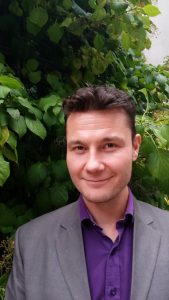
Pasi Hario
Pasi Hario is working as a research specialist in GAP for Laurea University of Applied Sciences. He also contributes to other security related projects such as Improving the Effectiveness of Capabilities in EU (IECEU) conflict prevention and Cpex (Design, Plan and Conduct an evaluation for the Union Civil Protection Modules Exercises).
Mr. Hario's academic background is in conflict studies, history and future studies. He is a politics and communications professional with a broad experience in national level governance, working with NGO's, academic world and operational crisis management duties.
Future Analytics Consulting (FAC) Ltd, is an SME based in Dublin, Ireland. FAC is a Chartered Planning, Data-led Research and Economics Consultancy, with award winning experience in European Commission-funded research. FAC has participated in numerous FP7 and HORIZON 2020 projects, in roles such as Project Coordinator (HARMONISE and RESILENS), Work Package Manager and Consortium Partner. FAC’s business is all about evidence – the collection, analysis and presentation of information to inform smart decision-making. The company integrates strategic thinking with sound business acumen, underpinned by data analytics and visualisation. FAC adds value through project results and recommendations. Our experienced team prides itself on the delivery of positive solutions. Our market space and client-base is diverse, reflecting the importance of data to inform decision-making in all sectors. We plan. We engage. We deliver.
Stephen is representing FAC in the GAP project. Stephen is a Director at FAC, and his background is in urban development and strategy. Over the last 7 years, much of Stephen’s research has focused on the area of urban resilience, urban security and connected safety, and Smart Cities. Within European research projects, Stephen has worked extensively with consortia on knowledge sharing frameworks, dissemination channels, and the development of commercialisation and exploitation opportunities arising from the research project, most notably in tool and platform development. During 2012-2015, one of the projects which FAC participated in was COBACORE – Community Based Comprehensive Recovery – which explored the role of communities in disaster recovery. Many of the principles explored within COBACORE resonate with the ambitions of the GAP project and, together with the other complimentary projects that FAC, and other GAP partners, have delivered in recent years, it will be important and valuable to harness these research synergies. For more on FAC, please visit the company website at www.futureanalytics.ie
Mads Haahr is CEO and Creative Director for the award-winning Haunted Planet Studios, whose primary responsibility in GAP is to design and develop the GAP game. Mads is a true multidisciplinarian with BSc (1996) and MSc (1999) degrees in Computer Science and English Literature from the University of Copenhagen and a PhD (2004) in Computer Science from Trinity College Dublin. In addition to his work for Haunted Planet, Mads is a Lecturer with the School of Computer Science and Statistics in Trinity College Dublin where also serves as Course Director for the MSc in Interactive Digital Media. His main research interests in Trinity College are in Game Studies, Interactive Digital Narrative and Artificial Intelligence for Games, and he has published over 50 peer-reviewed publications and supervised five PhD students to completion on these and other topics.
Mads is also known for creating the Internet's premier true random number service RANDOM.ORG.
Róisín Cotton
Róisín is a game developer for Haunted Planet Studios, working as both a programmer and a game designer. A Computer Science B.A. (Mod.) graduate of Trinity College Dublin, she has worked in games for the last decade developing and designing, amongst other things, augmented reality games for smartphones and massively multiplayer online browser based games. She is particularly interested in using games to illuminate alternative experiences and to foster empathic connections between people.
Dr Kieran Doyle is the Assistant Director of the Edward M Kennedy Institute for Conflict Intervention in Maynooth University, Ireland. The Institute has a high level of external engagement with key practitioners and organisations active in the practice of negotiation, mediation, peacebuilding and restorative practice.
Dr Doyle is Irish representative on the Academic Board of the European Security and Defence College (ESDC) based in the European External Action Service, Brussels, and also represents Ireland on the Academic Think Tank of the Organisation of Security and Cooperation in Europe (OSCE).
His primary research and teaching interests lie in peacebuilding and practice based learning, and since 2015, leads the Kennedy Institute team in two H2020 research projects examining the effectiveness of EU conflict intervention capabilities. He is also a founding member of the editorial board and coordinator of the openaccess Journal of Mediation and Applied Conflict Analysis (JMACA) published online at https://www.maynoothuniversity.ie/edward-m-kennedy-institute/journal-mediation-and-applied-conflict-analysis.
Dr Róisín Smith is currently a Research Fellow with the Edward M. Kennedy Institute for Conflict Intervention, Maynooth University, Ireland. Dr Smith holds a PhD in political science from Queen’s University Belfast and a masters in International Studies from the University of Limerick. She has taught international political conflict, U.S. foreign policy and interventions in the Middle East, in Dublin City University and Trinity College Dublin. While completing a doctorate on ‘U.S. mediation in the Palestinian-Israeli conflict’, Róisin was a politics tutor at Queen’s University, teaching at both undergraduate and post-graduate level on International Relations. In addition to presenting at conferences and conducting reviews for the Irish Political Studies Journal, she has field experience in the Middle East and Africa. Her work extends to the humanitarian and development sector and she has provided research, evaluation and monitoring and consultancy projects for NGOs in Ireland and Ethiopia. Róisín’s area of expertise includes conflict prevention and post-conflict environments, mediation and negotiation, human rights and humanitarian intervention as well as the foreign policies of the European Union and United States.
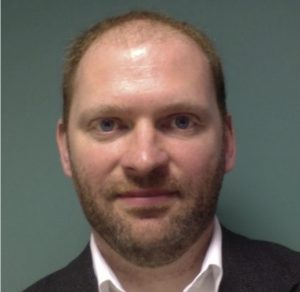 Michael Cook
Michael Cook
Dr. Michael Cooke has been a principal investigator on numerous FP-7 and H2020 projects including iSAR+, HOMER, SOTERIA, RESILENS. He is an applied psychologist with key expertise in organizational psychology, human factors, HCI and computer-support cooperative work (CSCW). And has worked in various different human factors domains including air traffic control, flight operations and maintenance, crisis and emergency management, security and LEA processes, manufacturing and energy prod
Rowena is an experienced skills and qualifications development specialist and project manager with a focus on bespoke analysis and benchmarking. A proven record in product development such as online career tools benchmarked to occupational standards, and creating bespoke qualifications to ease transitional skills capacity during organisational change.
An expert in the design and use of workforce development tools including building competency frameworks, functional mapping at various levels, and developing and using national and international standards and best practice. Rowena applies 10 years of experience developing workforce skills across a variety of sectors around the world, and makes connections to key policies and regulations to ensure clients are at the forefront of the skills arena.
Stephen has a proven track record in assessing, leading and motivating others to the highest professional standards. Incisive with business development opportunities, thriving on business and strategic planning. Extensive experience in workforce design, workforce engagement, and delivery of various learning and development solutions within front facing services and specializes in capacity building through reform, community development, and learning delivery.
Using a wealth of knowledge and experience within the skills sector has allowed close working with clients to identify the ‘supply and demand’ of workforce needs, assisting them in finding cost effective solutions. Through Upskill Enterprise, Stephen applies skills in design, development, sales and delivery of various restructuring solutions within the EU with specialisms in security, capacity building through reform, community development, and corporate leadership. The foundation and core of this experience comes from work with communities internationally.
Ms Elisa Norvanto is working as a Researcher and Project Specialist in the Finnish Defence Forces International Centre, responsible for the research and development activities related to European Union Security and Defence Policy and training/exercise evaluations. Her background is in Political Science and Economics and she has been working within international education and training since 2011. She has been involved in developing and implementing capacity building programmes in Africa and the Nordic countries, as well as developing evaluation concepts for crisis management training. In addition, she has conducted research on the civil-military synergies within the CSDP missions and operations, and she is currently involved in several research and capacity building projects aiming at enhancing the collaboration between different actors in the framework of comprehensive security.
Lieutenant Colonel Hannu Mattinen is a section chief in the Finnish Defence Forces International Centre, FINCENT. His section functions as a Department Head for NATO’s Military Contribution to Peace Support, Finland’s Centre of Expertise in NATO’s Operational Capabilities Concept Evaluation and Feedback program, Finnish Defence Forces special adviser in Gender and manages all research programs that FINCENT is involved in.
Prior to his present assignment Mattinen was the Executive Officer and the Chief of Staff in an international ‘Think Tank’, PIAG (Partner Interoperability Advocacy Group) to promote Partner – NATO interoperability in the military sphere through innovation, lessons learned, and enhanced cooperation practicalities. In his over twenty-five yearlong military career Mattinen has served in various national and international posts including Partner National Military Representative to Allied Command Operations in SHAPE as well as Finland's Assistant Military Representative to NATO and Senior General Staff Officer in the Ministry of Defence of Finland. Mattinen has also an extensive operational experience from UN and NATO Peace Support Operations.
Mattinen is a 1991 graduate of the Finnish National Defence University and a native of Helsinki. He has done his advanced military studies in the Norwegian Defence University College and was nominated as a General Staff Officer in 2003.
Mascia Toussaint is the co-founder and executive director of Enquirya, a Dutch SME focusing on developing turn-key software solutions and consultancy, supporting governments and companies with data driven quality assurance in safety and crisis management. She holds masters in international relations, European law and Dutch civil law from Leiden University. Before joining Enquirya, she worked in the Netherlands for the Ministry of Justice, the National Police Agency, the Ministry of Interior and in Brussels for the European Commission.
Kamila Trochowska
Dr. Kamila Trochowska, is an Assistant Professor at the State Security Institute of the War Studies University in Warsaw. She is currently the creator and director of the Cross-Cultural Competence for CSDP Missions and Operations course for the European Security and Defense College and the Operationalization of Culture for HUMINT course for the Polish Armed Forces. Dr. Trochowska realized six research projects on operationalization of culture for the military, security culture and anthropology of cybersecurity for the Ministry of Defense and National Science Center, and currently runs one on cognitive science applications for security and defense for the Polish Ministry of Science.
Since 2011 she has been a member of national and international research teams at the Polish National Security Bureau, Individual Training and Education Developments NATO Training Group, NATO ACT Innovation Hub, NATO DEEP, European Security and Defence College, Applied Human Factors and Ergonomics Society, Polish Armed Forces, German Armed Forces, French Armed Forces, Kyoto University, World in Conversation Center of the Penn State University, Swedish National Defense University and Polish ADL Labs. As her scientific background is rooted in both cultural anthropology (M.A.) and security studies (Ph.D. on Operationalization of culture in contemporary military operations), Dr. Trochowska performed interdisciplinary field research at the Lakota Standing Rock Reservation in South Dakota, United States (2008), Palestinian Yarmouk Refugee Camp in Damascus, Syria (2010), Turkish police and military institutions (2011), American military institutions - US Army War College and US Central Command (2012) and Joint Special Operations University, USAWC, West Point, NATO ACT and US Naval War College (2015), and Ukraine (2016) on cultural aspects of security and defense.
She is the author of numerous scientific publications in the field of cultural aspects of contemporary security environment and cross-cultural competence training for the military and civilian defense organizations. Her research interests include cultural dimensions of national and international security, cross-cultural competence for security and defense, security culture, anthropology of cybersecurity, military training and neuroanthropology.
After hours she is a proud mom of two, a backpacker and a huge fan of professor Robert Sapolsky.
Aleksandra Nowak - a leader of project team Gaming for Peace GAP in National Police Academy in Szczytno, assistant professor in Institute of Law and Administration, Department of Administration, Police Academy in Szczytno, captain of Polish Police. PhD in legal sciences on The Nicolaus Copernicus University in Toruń, post-diploma degree in “European Integration and Transnational Cooperation” on The University of Warmia and Mazury in Olsztyn. Member of European Society of Criminology. Author of many scientific articles.
For last sixteen years serving in Police Academy in Szczytno with the expertise both as a lecturer and a scientific worker in the Institute on Combating Crimes and then Institute of Law within the Department of Administration. Since 2015 also holds the function in the international network of CEPOL as the research & science correspondent for polish police. Specialization in the field of legal sciences, in particular human rights, European Union law, and also criminology, combating drug crimes and international police cooperation.
A leader of project financed by Erasmus Plus Program Nr KA107 Higher education student and staff mobility between Programme and Partner Countries - cooperation with The University of Limpopo (RSA).
In the past - leader of several projects financed by Polish Scientific Research Committee e.g:
"Law enforcement cooperation in the fight against organized international crime"
"Development of the illegal drug market, and crime with the use of synthetic drugs".
Dr. Walentyna Trzcinska is a retired Police officer and a senior lecturer at the Police Academy in Szczytno, Poland. She works in the field of Police management, teamwork, leadership, quality management and prevention of discrimination and hate crime.
During her career she has been working as a trainer in numerous national and international courses for police management staff. From 1999 to 2011 she was a Polish representative in European Network for Policewomen and from 2009 to 2012 – a member of Working Group on Learning within CEPOL - The European Union Agency for Law Enforcement Training.
Col Dr. Eng. Nikolai Stoianov , associate professor. Dr. Stoianov is researcher in the Development of C4I Systems Directorate. He is well experienced in development of information systems with different designation, many of which are already brought into use in the Bulgarian Army. He is specialized in the sphere of Information Security and as such is involved in the European Projects on the FP7 “INDECT”, "HOMER", H2020 “GaP, and EDA project “SPIDER”.
Nikolai Stoianov is member of NATO STO IST Panel and participate in ET-066 "Future concepts and tools for Cyber Defence", IST-RTG-108 on "Cyber Defence Situational Awareness", and IST-152 RTG "Intelligent Autonomous Agents for Cyber Defence and Resilience", Research Lecture Series organizer and director RLS-143 on "Cyber Security Science and Engineering". The experience of Dr. Stoianov could be useful in design and establishment of the information systems, envisaged in the project. Having in mind project specificity and the information, which will be stored in those systems, of great importance for them will be the information security. Dr. Stoianov has more than 80 published papers in national and international scientific conferences and journals, he is author and co-author of five books in field in network and information security.
The project managing experience of Dr. Stoianov consists of: Project coordinator of national project “Military Messaging System X.400” from 2007-2010. WP6 leader of FP7 HOMER project (2014-2016); External Advisory Board member of FP7 Project PANOPTESEC (2014-2016); NATO STO IST Panel co-chair of subgroup Information Assurance and Warfare (IWA) (2016-).
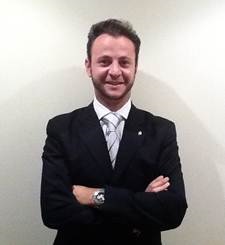
Pedro Miguel de Brito Esteves Grilo
Academic Training
- Institute of Police Sciences and Homeland Security (ISCPSI), Lisbon:
- Graduation in Police Science (1996-2001).
- Institute of New Professions (INP), Lisbon
- Graduation in Public Relations and Advertising (2002-2006).
- Institute of Police Sciences and Homeland Security (ISCPSI), Lisbon:
- Police Command and Direction Expertise Course (2015).
Technical Training
- Training of Trainers
- Road Accidents
- Criminal Investigation
- Sports Event Policing
- Care of Victims
- Security of Critical Facilities
- Counterfeiting
- Command and Leadership
- Risk Assessment of Domestic Violence Victims
- Dashboard View performance
Professional Experience
- International - Criminal Investigation instructor in Police Science Middle Institute of the Angola National Police (2006);
- Traffic Squad Commander since 2001 to 2006;
- Criminal Investigation Squad Commander since 2006 to 2008;
- Interviewing and interrogation techniques instructor (2007, 2008, 2009, 2010);
- Head of the Operations Core in Lisbon Metropolitan Police since 2008 to 2011;
- Head of Proximity Policing and Crime Prevention Core of PSP, 2012
- Head of Documentation, Attendance and General Support of National Human Resources Department, 2013
- Head of Studies and Police Doctrine Core of PSP National Operations Department, SET2013
- Head of Public Security Core of PSP National Operations Department, 1MAR2014

Tiago Ventura Brás Sales
Academic Training
- Institute of Police Sciences and Homeland Security (ISCPSI), Lisbon:
- Graduation in Public Security (2007-2010).
- Institute of Police Sciences and Homeland Security (ISCPSI), Lisbon:
- Master degree in Police Science (2010-2012).
- The NOVA Faculty of Law (FDUNL), Lisbon:
- Master degree in Law and Security (2012-2014).
Technical Training
- Care of Victims
- Command and Leadership
- Risk Assessment of Domestic Violence Victims
- Prevention in suicide
Professional Experience
- Commander of Santana Police Station (2012-2013)
- Internal Disciplinary Process Instructor (2013-2014)
- Commander of Monte Abraão Police Station (the area of responsibility is the public transports and the surrounding areas) (2014-2015)
- Head of the sub department Studies and Police Doctrine, part of the International Relationship Department of PSP National Operations Department(2015-present)
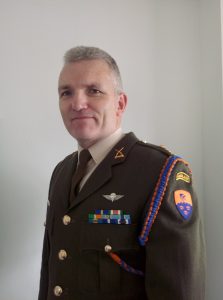
Seán Murphy
Lt Col Seán Murphy is a member of the Defence Forces (DF) with over 30 years of experience. During his service he has filled a variety of appointments in the organisation. In DF training and education he has served as a military instructor in several different DF training institutions including the Officer Training Wing and the NCO Training Wing in the Military College. He has played a key role in leadership development training and education in these appointments and has prepared DF members, of various ranks, to perform their duties in the full spectrum of military operations. This has included the preparation of DF units to deploy on UN mandated Peace Support Operations. His most recent involvement in DF training and education was as DF Registrar (June 2014-October 2016) with responsibility for the Quality Assurance Policies and Procedures for training and education in the DF. In addition he was the DF primary point of contact with its collaborative educational partners including Maynooth University, the Institute of Technology Carlow and the Institute of Public Administration (the DF has a number of validated and accredited educational opportunities for its members which lead to the conferral of awards at levels 6, 7, 8 and 9 on the National Framework of Qualifications).
Lt Col Murphy has held a number of appointments in the planning and organization of crisis management operations both at home and overseas. He has served in a number of capacities overseas in UN mandated Peace Support Operations conducted by the UN, the EU and NATO including in command of troops, as a military observer and as a staff officer at multinational HQ level.

